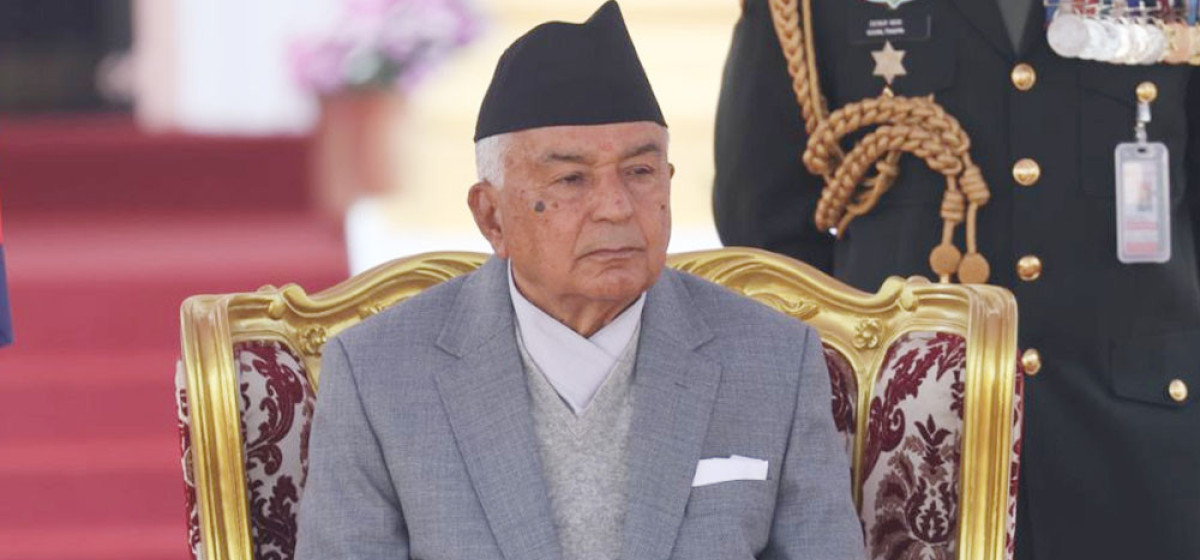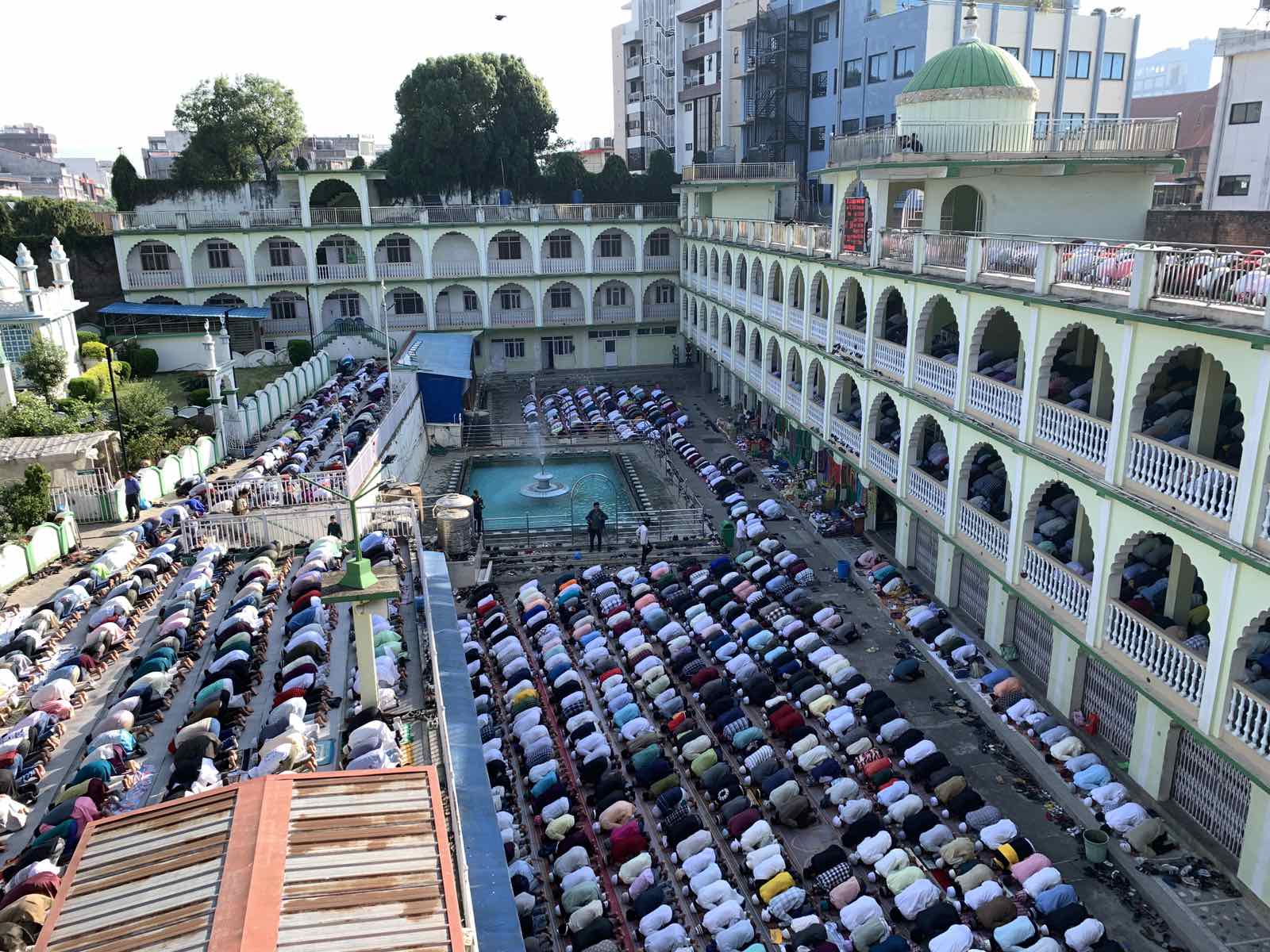KATHMANDU, June 7: Muslims across Nepal are celebrating Bakr Eid (Eid al-Adha), the second major festival in Islam, with special prayers at mosques throughout the country.
According to Islamic tradition, Bakr Eid is observed on the 70th day after Eid al-Fitr, which marks the end of Ramadan. On this day, Muslim devotees wake up early, perform ritual purification, and gather at nearby mosques or Idgah to offer congregational prayers (namaz). After the prayers, they greet each other and exchange Eid wishes.
Large crowds are seen at major mosques and Idgahs, including the Nepali Jame Mosque at Durbar Marg and the Kashmiri Mosque in Kathmandu. The festival commemorates the willingness of Prophet Ibrahim (Abraham) to sacrifice his son Ismail (Ishmael) on Allah's command around 1,440 years ago, according to the Hijri calendar.
Bakr Eid promotes harmony and equality: President Paudel

Muslim cleric (Maulana) Rahmat Ali explains that Prophet Muhammad (Peace Be Upon Him), who was born in Mecca in 571 AD and was a descendant of Ibrahim, continued this tradition. He made significant contributions to spreading the religion and codifying its teachings in the sacred text ‘Hadith,’ which is still taught in Islamic schools (madrasas).
"This scripture is studied in religious schools, and since Prophet Muhammad moved to Medina at the age of 53, both Mecca and Medina in Saudi Arabia host large pilgrimages during this festival," Ali said.
It is considered auspicious to visit Mecca and Medina during Bakr Eid. The Ministry of Home Affairs facilitates Hajj pilgrims by arranging travel and airfare. A Hajj Committee Secretariat has been set up under the ministry to manage this process. Those who cannot travel to Mecca and Medina observe Bakr Eid at home. The essence of this festival is the Hajj pilgrimage and the act of sacrifice (qurbani), where Muslims offer animals permitted by Islamic law as a way to please Allah.
According to Islamic belief, Prophet Ibrahim, who was childless until the age of 90, prayed to Allah for a child and pledged to make a sacrifice if granted one. After he was blessed with a son, Ismail, Allah tested his devotion by commanding him in a dream to make a sacrifice. Although he prepared to sacrifice his beloved son, Allah, pleased with his faith, replaced Ismail with a ram from paradise. This tradition of sacrifice continues to this day.
The meat from the sacrificial animal is divided into three parts-one-third is given to the poor and needy, another third to relatives and friends, and the remaining third is kept for the family. As per this tradition, Muslims begin celebrating Bakr Eid today and continue the festival for three days, with a ritual requirement to offer sacrifices on each of those days. Mansur Hussain, secretary of the Nepali Jame Masjid, confirmed this practice. The government has also declared a public holiday to mark the occasion.




































